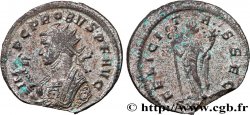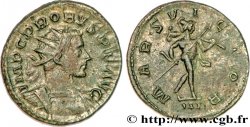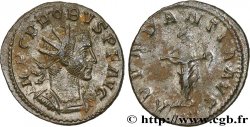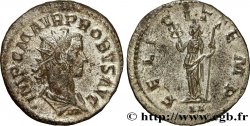E-auction 162-98946 - brm_173242 - PROBUS Aurelianus
You must signin and be an approved bidder to bid, LOGIN TO BID. Accounts are subject to approval and the approval process takes place within 48 hours. Do not wait until the day a sale closes to register. Clicking on « bid » constitutes acceptance of the terms of use of cgb.fr private e-auctions.
Bids must be placed in whole Euro amounts only. The sale will start closing at the time stated on the item description; any bids received at the site after the closing time will not be executed. Transmission times may vary and bids could be rejected if you wait until the last second. For further information ckeck the E-auctions F.A.Q.
NO BUYER'S FEE.
NO BUYER'S FEE.
| Estimate : | 125 € |
| Price : | 38 € |
| Maximum bid : | 60 € |
| End of the sale : | 23 May 2016 14:30:00 |
| bidders : | 6 bidders |
Type : Aurelianus
Date: 278-279
Mint name / Town : Lyon
Metal : billon
Millesimal fineness : 50 ‰
Diameter : 21,5 mm
Orientation dies : 12 h.
Weight : 3,75 g.
Officine: 3e
Coments on the condition:
Exemplaire de qualité exceptionnelle pour ce type de monnayage sur un petit flan ovale, bien centré des deux côtés. Très beau portrait. Revers de haut relief, bien venu à la frappe. Jolie patine grise avec des reflets métalliques dorés. Conserve la plus grande partie de son brillant de frappe et de son coupant d’origine
Catalogue references :
Predigree :
Cet exemplaire provient de ROME III, n° 284
Obverse
Obverse legend : IMP C M AVR PROBVS AVG.
Obverse description : Buste radié, drapé et cuirassé de Probus à droite, vu de trois quarts en arrière (A2).
Obverse translation : “Imperator Cæsar Marcus Aurelius Probus Augustus”, (L'empereur césar Marc Aurèle Probus auguste).
Reverse
Reverse legend : MARS - V-I-CTOR/ -|-// III.
Reverse description : Mars nu et casqué à droite, le manteau sur l’épaule flottant au vent, tenant une haste transversale de la main droite et un trophée reposant sur l’épaule gauche.
Reverse translation : “Mars Victor”, (Mars victorieux).
Commentary
Avec l’intégralité de son argenture superficielle. Rubans de type 3 aux extrémités bouletées. Ptéryges invisibles sous le paludamentum.







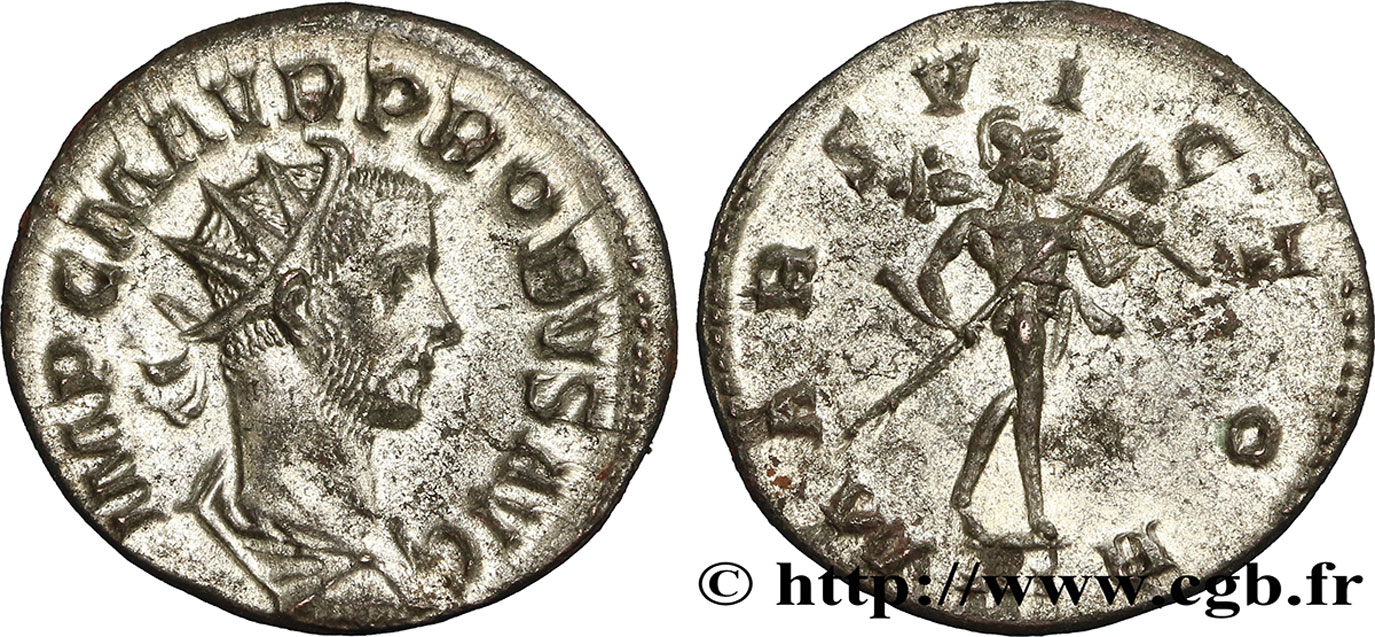
 Report a mistake
Report a mistake Print the page
Print the page Share my selection
Share my selection Ask a question
Ask a question Consign / sell
Consign / sell
 Full data
Full data